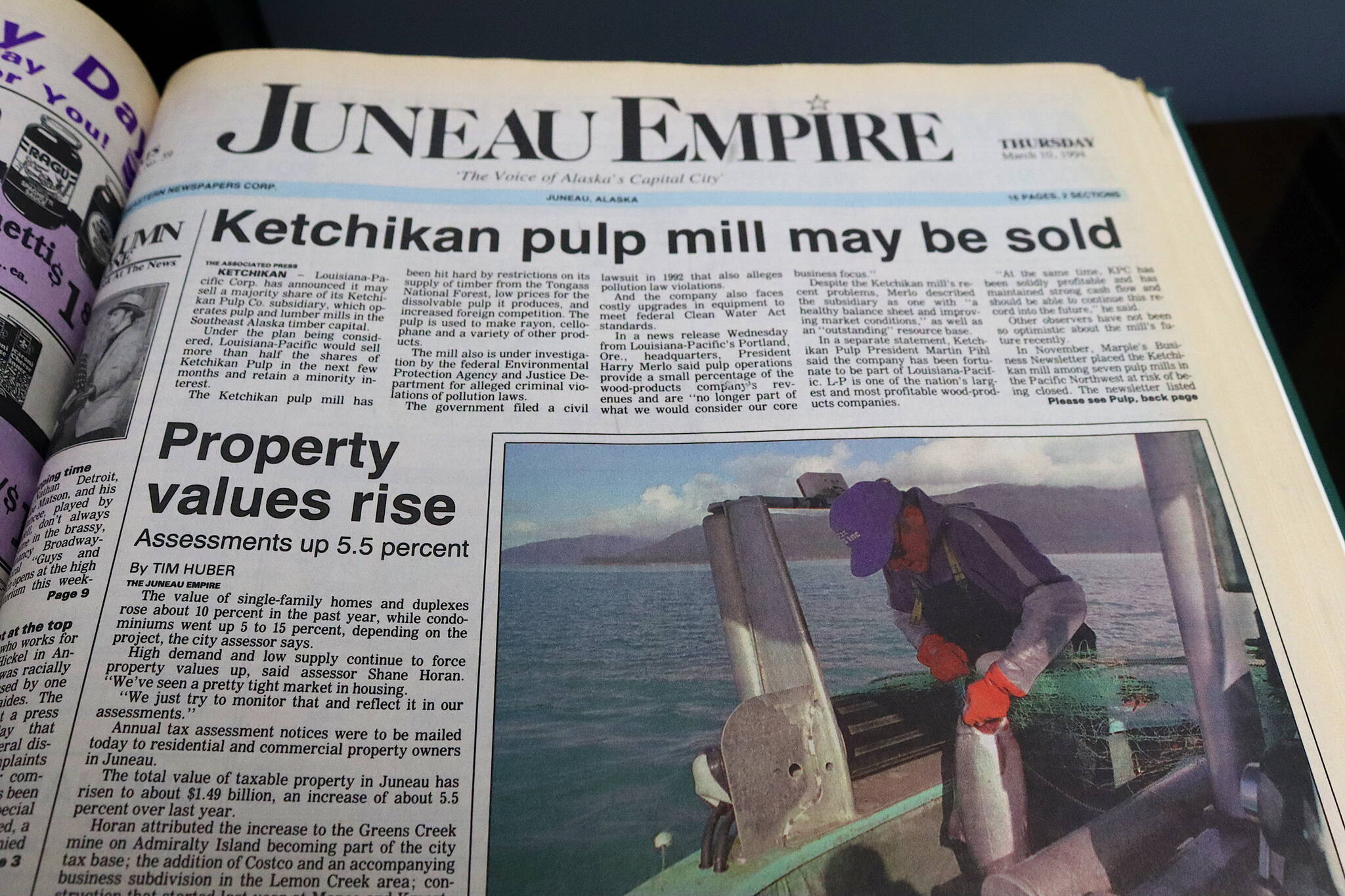Empire Archives is a series printed every Saturday featuring a short compilation of headline stories in the Juneau Empire from archived editions in 1984, 1994 and 2004.
This week in 1984, Alaska ranks no. 1 in the nation in per-capita spending on criminal justice, laying out $275 per person annually, according to a new U.S. Department of Justice report. Only seven other states — California, Nevada, Arizona, New York, New Jersey, Delaware and Maryland — spend more than $120 per person for criminal justice. Alaska’s crime rate is ninth in the nation. For every 1,000 Alaskans, 60 to 80 crimes occur each year while only 10 to 15 arrests are made, according to the department. The North Slope is among the areas of the nation which has the most police officers per 1,000 residents, although it — like the rest of the state except for the Sitka area — has five or fewer law enforcement officers for each 100 square miles. The Sitka area, according to the report, has 15 to 20 officers for every 100 square miles. According to the report, Alaska has 1,062 adults in state correctional facilities and 373 juveniles confined.
Today Alaska rates at or near the top of per-capita spending on criminal justice, although the District of Columbia is generally higher than any of the states, according to various studies conducted between 2020 and 2023. One study placed Alaska’s per-capita spending in 2020 at $554.21, compared to a nationwide average of $352.
Original Story: “State top criminal justice spender,” by Christopher Jarvis. 3/13/1984.
This week in 1994, The value of single-family homes and duplexes rose about 10% during the past year, while condominiums went up 5 to 15%, depending on the project, the city assessor says. High demand and low supply continue to force property values up, said assessor Shane Horan. “We’ve seen a pretty tight market in housing.…we just try to monitor that and reflect it in our assessments.” The total value of taxable property in Juneau has risen to about $1.49 billion, an increase of about 5.5% over the last year. Horan attributed the increase to the Greens Creek mine on Admiralty Island becoming part of the city tax base; the addition of Costco and an accompanying business subdivision in the Lemon Creek area; construction that started last year at Mapco and Kmart, and about 70 new houses. Taxable property in the city was worth about $1.41 billion last year and $1.35 billion in 1992. The Assembly has not set the tax rate for this year, but a mill rate of 14.23 is being considered compared to last year’s rate of 14.02 mills.
Today residential property assessments rose 1.66% for 2023, far below the 16% jump in 2022. The total preliminary assessed value of all Juneau properties was nearly $6.7 billion in 2023, compared to nearly $6.6 billion the previous year. The current property tax rate is 10.16 mills.
Original Story: “Property values rise,” by Tim Huber. 3/10/1994.
This week in 2004, An education funding package passed by the House on Monday and supported by Gov. Frank Murkowski would provide the Juneau School district with about $3.23 million more next school year. The district had proposed laying off 26 teachers and making other cuts to fill a projected $2.1 million gap for the next school year’s roughly $40 million operating budget. The new funds from the bills the House passed Monday wouldn’t be enough to replace all of the services cut this school year, but it would allow the district to balance next year’s budget “and not have to do those dreadful cuts for staff,” said Juneau School Board President Mary Becker. The district had cut about $1.7 million in services to balance this year’s budget, including afternoon kindergarten buses, after-school activity buses and six teaching positions.
Today the district is in a situation with many similarities as it is planning a major restructuring, including consolidating schools and dozens of layoffs, to cope with a nearly $10 million deficit next year. The state Legislature has passed a bill that would provide roughly $5 million to the district, but the fate of that funding is unknown since even if legislators override Gov. Mike Dunleavy’s veto of it he can use his line item veto on the funds when he signs the budget in June.
Original Story: “District could garner millions from bills,” by The Associated Press and Juneau Empire staff. 3/10/2004.

